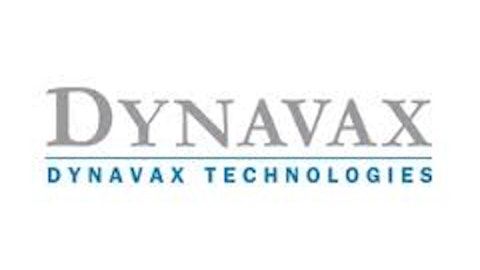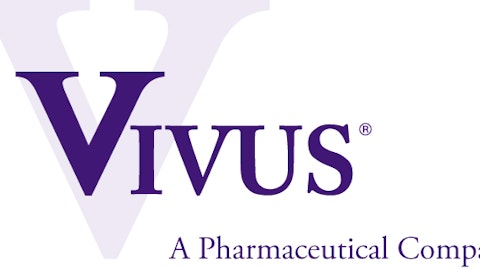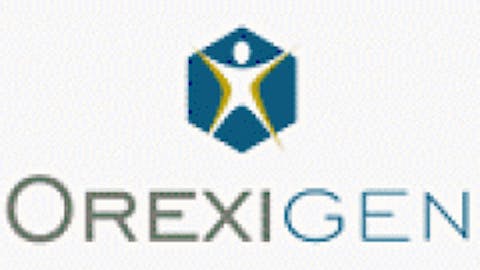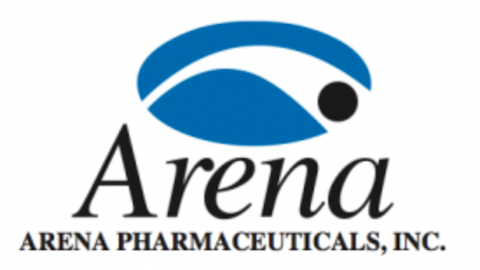The early bird gets the worm. Business gurus might not use that old phrase, but many of them tout the principle behind it. They tell anyone who will listen that getting to market first provides significant advantages. Customers will gain familiarity with the first product on the market and be much less likely to switch to another product later. That’s what the gurus say, but is it true?
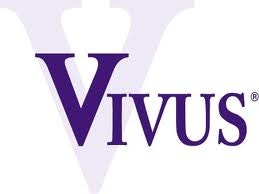
However, Arena Pharmaceuticals, Inc. (NASDAQ:ARNA) is nipping at its heels. Arena’s Belviq actually gained FDA approval a few weeks earlier than Qsymia. The company hasn’t been able to launch the drug commercially, though, as it awaits scheduling by the Drug Enforcement Agency.
Will VIVUS, Inc. (NASDAQ:VVUS) be able to benefit from a first-mover advantage? Or is this concept really not applicable to biotech?
Birds of a different feather
If history is a guide from a different area of biotech, VIVUS, Inc. (NASDAQ:VVUS) might be in for a challenge. Way back in 1998, Amgen (NASDAQ:AMGN)‘s Enbrel became the first TNF inhibitor to receive FDA approval for treating rheumatoid arthritis. Regulatory approval for other indications followed over the next few years.
By any measure, Enbrel was a huge success. But another TNF inhibitor followed closely in its footsteps. Johnson & Johnson’s Remicade gained FDA approval for treating rheumatoid arthritis in 1999. The two drugs battled it out by themselves until 2002, when the FDA approved AbbVie’s Humira.
So, how well did Amgen’s first-mover advantage hold up?
If we fast forward the clock to 2012, the sales for the three drugs tell the story. Amgen made $4.2 billion from Enbrel. Add to that figure another $3.7 billion from Pfizer‘s sales of Enbrel outside the U.S. That gives Enbrel a total of $7.9 billion in 2012 sales.
Second-to-market Remicade trailed Enbrel with $6.1 billion in sales. AbbVie’s 2012 sales for Humira totaled $9.3 billion, making it the world’s top-selling drug. While Enbrel and Remicade also rank in the top five drugs in terms of worldwide sales, the laggard in getting to market became the leader.
One slippery worm
Of course, second or even third place isn’t all that bad, even for a first-mover, when sales are great for everyone. So far, though, VIVUS, Inc. (NASDAQ:VVUS) is finding that the market for weight loss drugs isn’t as easy to crack as it had hoped.
U.S. sales for Qsymia have been disappointing — only around $2 million in 2012. VIVUS also has faced challenges in gaining approval for reimbursement for the drug, although the company has made progress on that front.
Europe has proved to be even more difficult. The Committee for Medicinal Products for Human Use, or CHMP, rejected Qsymia (known in Europe as Qsiva) in October. VIVUS appealed the decision, but CHMP stood by its earlier negative decision. Another clinical trial focusing on cardiovascular effects of the drug will be needed to move forward.
Now, the time is close at hand for Arena Pharmaceuticals, Inc. (NASDAQ:ARNA) entering the market with Belviq. In anticipation of this new competition, VIVUS has begun to take measures to hopefully preserve its first-mover advantage. On Tuesday, the company announced two new programs to try to attract and retain customers. Its “Save Now!” program gives qualified patients steep discounts for 30 days. Another promotion, called “Get Started!,” allows patients to try Qsymia for free for two weeks.
While the outcome remains to be seen, these programs seem to be a smart move for VIVUS. Motivating patients to try Qsymia could create loyal customers. The company will need as many of those customers as possible when Arena begins marketing Belviq. Look for Arena Pharmaceuticals, Inc. (NASDAQ:ARNA) to trumpet what it views as Belviq’s better safety profile, while VIVUS will tout what it sees as Qsymia’s stronger effectiveness.
The third mouse
Remember that in the rheumatoid arthritis market, the third entrant actually ended up being the biggest winner. VIVUS and Arena will also likely face another rival. Orexigen Therapeutics, Inc. (NASDAQ:OREX) hopes to bring its weight-loss drug, Contrave, to market in 2014. The company’s later arrival actually could bring some advantages, particularly in learning what not to do with its commercial launch by watching missteps by its rivals.
Many factors come into play with who ultimately wins in any market — price, effectiveness, marketing, and plenty of others. Sometimes the early bird handles these factors the best and gets the worm, so VIVUS could come out on top. Comedian Steven Wright, though, observed that while the early bird gets the worm, the second mouse gets the cheese. And, as we have seen, the third mouse can sometimes get even more.
The article Is There a “First-Mover” Advantage in Biotech? originally appeared on Fool.com.
Fool contributor Keith Speights has no position in any stocks mentioned. The Motley Fool has no position in any of the stocks mentioned.
Copyright © 1995 – 2013 The Motley Fool, LLC. All rights reserved. The Motley Fool has a disclosure policy.

